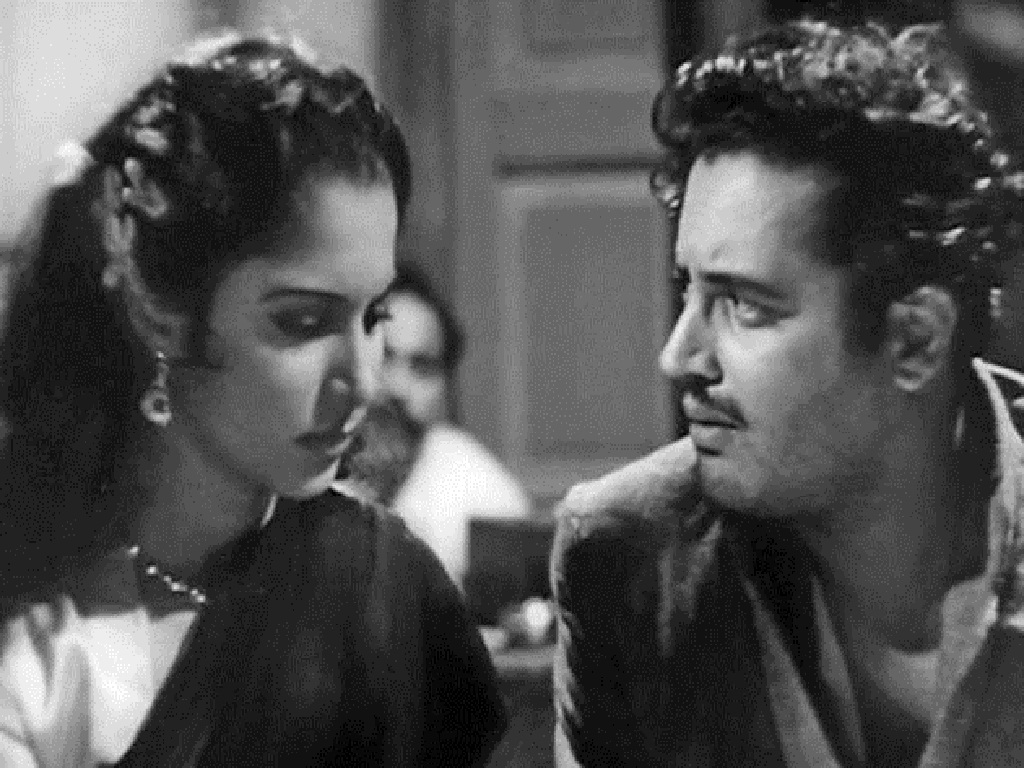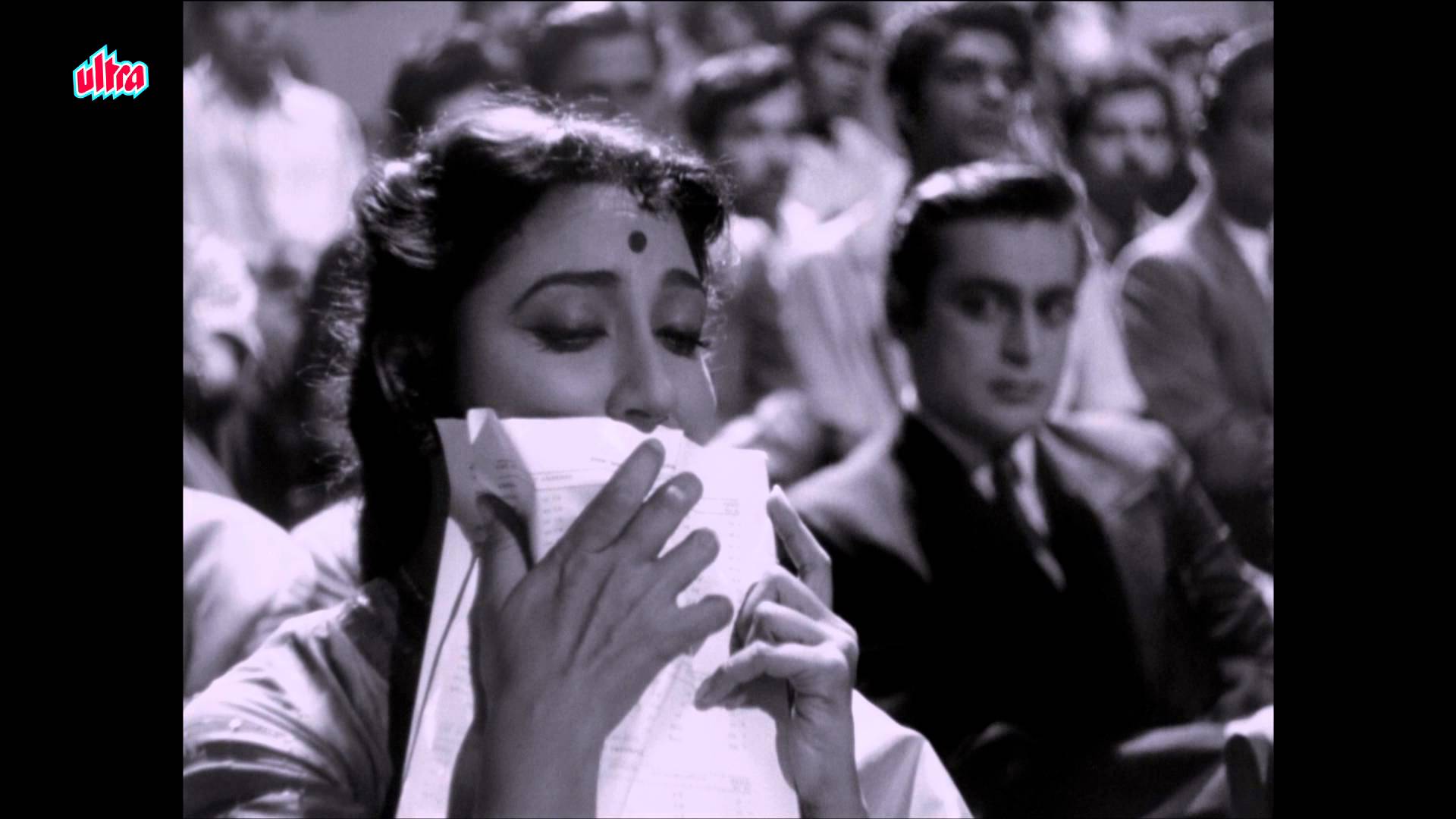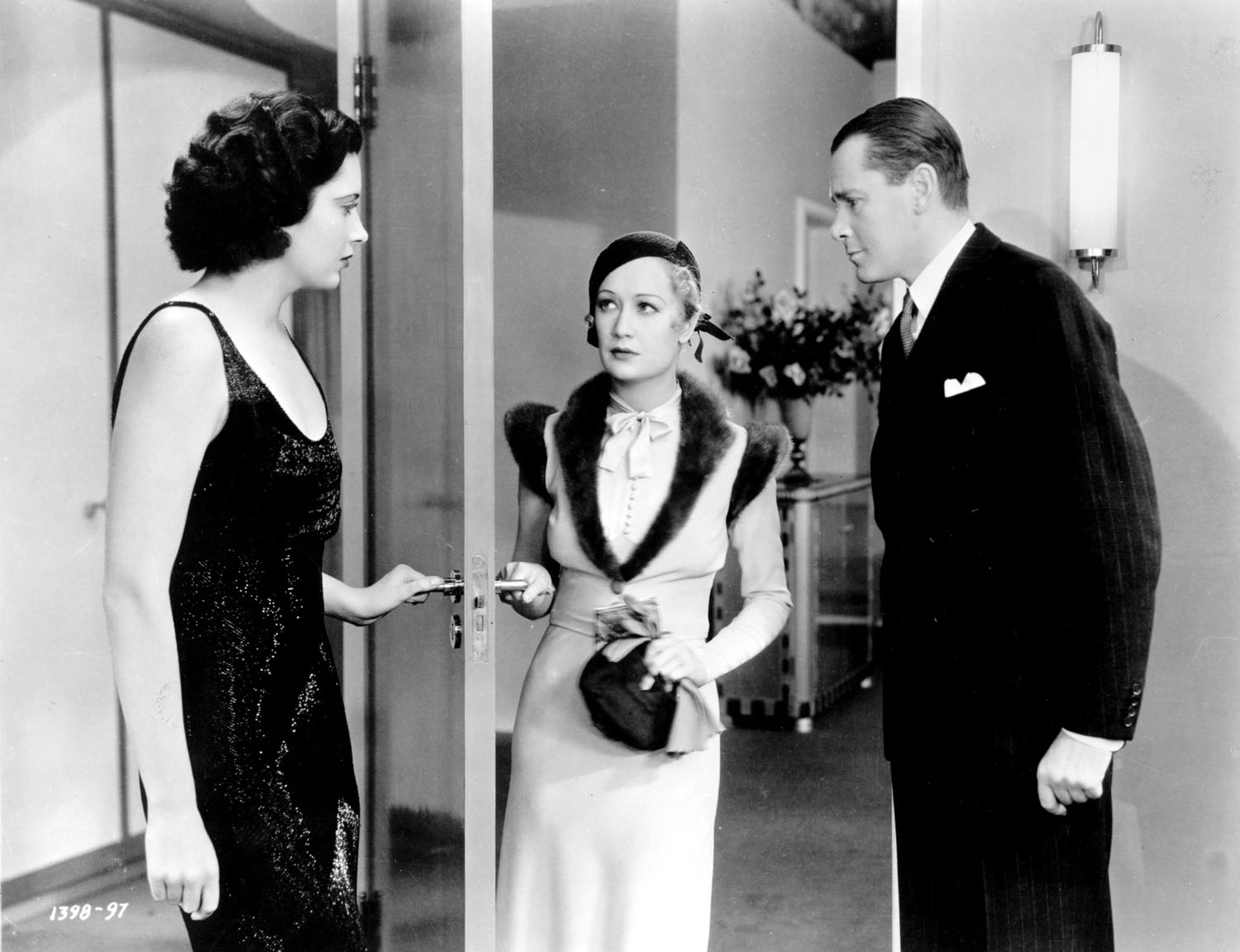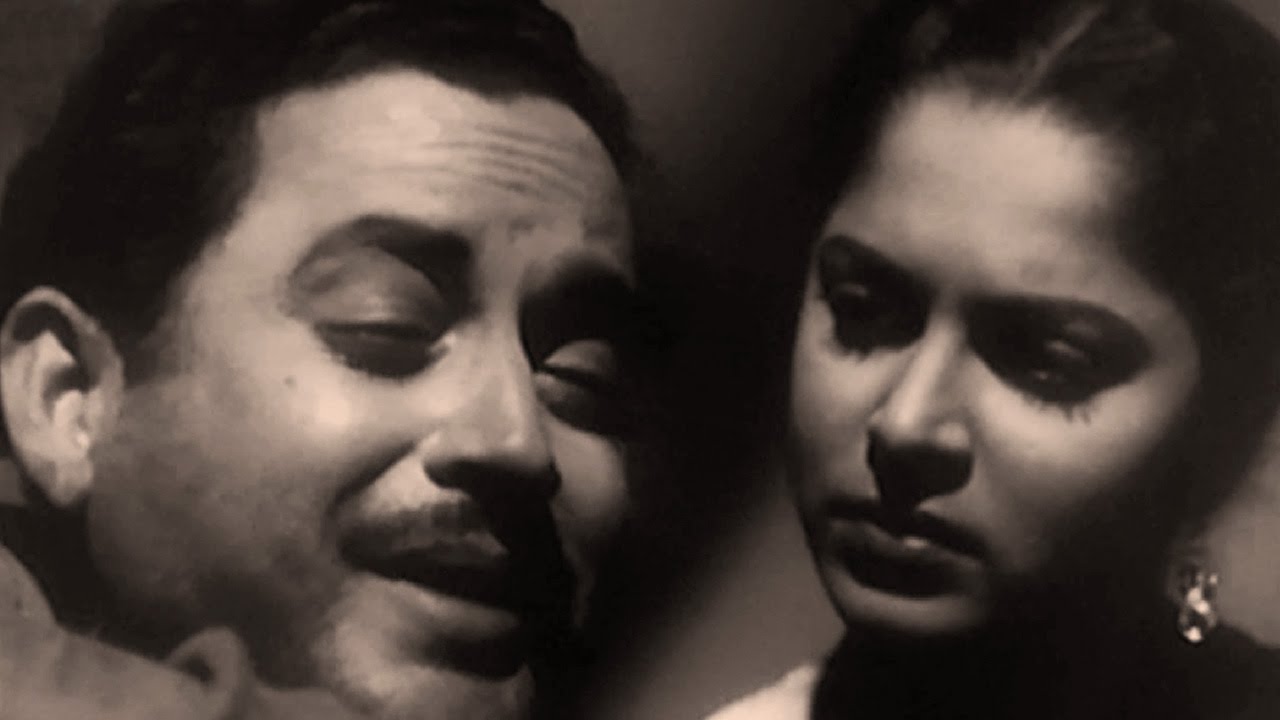The furious quote in the title, courtesy of our tortured poet protagonist Vijay (director/producer/star Guru Datt), arrives near the end of 1957’s Pyaasa. Spurned by a world that privileges commerce over art, that elevates duplicity over sincerity and integrity at every turn, Vijay has had enough. He longs not just for his own annihilation, but the destruction of every social condition that’s allowed for such rampant cruelty and greed. Datt’s Pyaasa is not fucking around.
It was also, somewhat incredibly, a monumental hit with critics and audiences alike. Blending the song and dance of classic Bollywood with comedic elements, doomed romances, and heart-on-the-sleeve social protest, Pyaasa is a very odd entry in late-50s cinema. It’s not hard to see its appeal, though: even if distributors forced a happy (ok, happy-ish) ending on Datt’s production, there is something for everyone here.
It also helps that Datt’s romantic direction, V.K. Murthy‘s expressionist cinematography, and S.D. Burman‘s effectively (and almost uniformly lovely) integrated songs work in tandem — if not seamlessly than at least not in distinction to each other. Pyaasa is a masterpiece of synthesis.

When the film opens, we find Vijay asleep in the forest, lost in painful reverie. He’s a penniless poet who thinks he has something important to tell the world, but finds the world decidedly uninterested, even hostile. Murthy’s camera trains in on a bee buzzing around a flower, as a poem (presumably Vijay’s) is recited, marveling at natural beauty but wondering what he could possibly add. Moments later, the bee is crushed by the shoe of a passing stranger.
In this moment, we learn two things: that the world is a tenuous place, and that Datt will not go light on the metaphors in Pyaasa.
Like that doomed bee, Vijay will be crushed under the heel of events. His two terrible brothers reject him as a good-for-nothing loafer, selling his poems for scrap paper and tossing him out of the family house, even over the objections of his long-suffering mother. An offer to publish his work ends up being a ruse orchestrated by a man named Ghosh (Rehman Khan) to find out why his wife Meena (Mala Sinha) so admires them. When circumstances indicate Vijay’s death, his work will be “posthumously” celebrated, as everyone in sight rushes to cash in on the fame they withheld during his life. It’s a cynical, untrustworthy land we’ve found ourselves in.

The only consistent image of love and beauty is that of Gulabo (Waheeda Rehman), a sex worker as despised for her job as Vijay is for his apparent lack of one. The larger society that casts judgement is implicated for its hypocrisy, while Pyaasa‘s narrative emphasizes integrity and honesty on the margins.
As it turns out, Vijay and Meena had been college sweethearts, but she abandoned him for the security of wealth with the noxious Ghosh. Pyaasa deals harshly with this decision, and for all its emphasis on the dire choices women face in the streets, its text has virtually no sympathy with Meena’s decision. This is an unfortunate missed opportunity.
In any case, something of a love triangle emerges between Vijay, Meena, and Gulabo, though it’s a decidedly chaste one (clear-eyed discussions of sex work aside). I was strangely reminded of Trouble In Paradise, two decades prior and a world away, in which integrity is associated with those who operate outside the bounds of respectability and derision reserved for those who come to their fortunes through standard channels.
 One crucial difference: Trouble In Paradise never asked audiences to root against Madame Colet, and certainly never subjected her to any lecturing. In that sense, Datt, with his sincere belief in the virtue of the artistic and the maligned, is far removed from the Continental cynicism of someone like Pabst, who views everyone as a crook of one sort or another.
One crucial difference: Trouble In Paradise never asked audiences to root against Madame Colet, and certainly never subjected her to any lecturing. In that sense, Datt, with his sincere belief in the virtue of the artistic and the maligned, is far removed from the Continental cynicism of someone like Pabst, who views everyone as a crook of one sort or another.
Of course, there are no fur coats or elegant cufflinks to be found in Pyaasa, which Datt actually wanted to partially shoot in the Red Light District until his crew was robbed by pimps and the production had to settle for replica sets. Post-Independence India is a rough place, and Pyaasa portrays it as such, as people with limited options scramble to get by. But through it all, even the most light-hearted moments, there is a very serious emphasis on the importance of integrity in a world of thieves.
Eventually, Pyaasa climaxes in a showdown between Vijay and the adoring audience who never loved him until he died. This is a strong moment in the film, and one with a lot of resonance in this or any time: we’re content to shrug off artistry in life and exalt it in death. Vijay refuses his fame and fortune, refuses even to prove his name. He sings to the riotous crowd:
A world where youth is driven to crime
A world where the young are groomed for the marketplace.
A world where love is another name for trade
For what will it profit a man if he gain the world?A world where man is worth nothing
A world where friendship and loyalty mean nothing
A world where love is regarded with disdain
For what will it profit a man if he gain the world?Burn this world, blow it asunder!
Take this world away from my sight!
This world belongs to you, you keep it.
For what will it profit a man if he gain the world?
As The Film Sufi astutely points out (in a piece containing more insight into Indian cinema than you’ll find here):
Since almost everyone that Vijay sees is out for his or her own selfish pursuits, his thoughts have now moved from frustration with his own personal circumstances (romance, family, joblessness) to a condemnation of the entire world.
Poems originally written for Meena, composed in heartbreak, now subsume life itself, at least as it’s lived by those in the gutters. Individual grief becomes social outrage, and Vijay leaves it behind in disgust.
None of this would work without the careful aesthetic, which not only emphasizes both close-ups and almost Wellesian in-depth compositions, but goes further into expressionism. One scene allows the camera to careen from Vijay’s face, zooming in and retreating, creating the effect of distance and longing the characters share. The final riot features an unexpected crane-shot of the assembled group of “mourners”, with Vijay backlit like Christ himself in a Church. Datt and his team are a long way from the static shots of musical numbers, or even the huge, intermittent spectacles of Raj Kapoor’s Awaara. This is something closer, more intimate, and angrier.
All of which it makes it sound like it’s lacking in fun. But the very fact that it was a mega-hit should dispel that notion. There are still songs, dances, and comic moments amid all the tortured meditations on social ills. I particularly enjoyed the goofball character of Sattar (Johnny Walker), a sympathetic huckster, and the brief appearance of Tulsi Chakraborty (the schoolteacher from Ray’s Pather Panchali) as a guy passing off counterfeit coins.
But the overwhelming sense you get from Pyassa is outrage that life can be so cheap, art so disrespected, women treated with such disdain. It’s a far more socially-minded film than I expected, and perhaps this, combined with its numerous other admirable elements, account for its popularity in 1957 and since.

